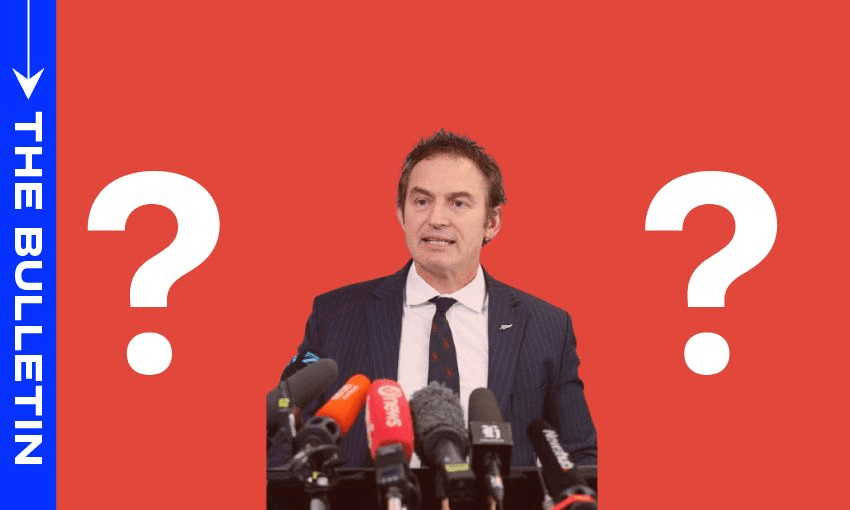A couple of names have cropped up as replacements for Nash following his resignation yesterday as the opposition calls for him to be sacked from all his portfolios, writes Anna Rawhiti-Connell in this excerpt from The Bulletin, The Spinoff’s morning news round-up. To receive The Bulletin in full each weekday, sign up here.
Gone by (late) lunchtime
It was possibly a tad late in the day for Stuart’s Nash’s resignation as police minister to be a true “gone by lunchtime” moment but I did return from lunch yesterday to the news. Nash was initially defiant in the face of calls for him to resign after telling Mike Hosking on Newstalk ZB that he’d called Police Commissioner Andrew Coster to discuss whether a sentence would be appealed. Stuff’s Glenn McConnell and Thomas Manch write that it was Nash’s “bravado” in calling Coster, admitting this on air, and then doubling down, that worried prime minister Chris Hipkins the most. Technically Nash had to resign because the government is expected to remain independent from judicial and police prosecutorial decisions.
The dangers of tough on crime rhetoric and Nash’s bravado
You have to wonder if it’s slightly galling for former police minister Poto Williams, who lost the portfolio for seemingly being “soft on crime”, to watch Nash’s bravado and need to sound very tough on crime, lead to his undoing. Stuff’s Luke Malpass writes that the interview with Hosking was “a case of my tough on crime outrage is bigger than yours”. Malpass says that the “interesting and depressing thing about this case, however, is how much it shows the dangers of enthusiastically ramping up the rhetoric on law and order.” Nash, he writes, was reappointed to the job as police minister “so he could go around and chest-beat about being tough on crime and backing the police.”
Opposition calls for Nash to be sacked from all his portfolios
Nash is well-liked and affable. He’s the kind of politician who will speak with Spinoff editor Madeleine Chapman not once, but twice about why he is not wearing a shirt in a photo of him getting his Covid vaccination. But he’s also known as a “controversial minister” and has shown very poor judgement. The opposition is calling for Nash to be sacked from his remaining portfolios. He remains economic development, forestry and oceans and fisheries minister for now. Newsroom’s Jo Moir writes that his instinct to fight back and defend, rather than take time to reflect and consider, raises serious questions about what he understands to be acceptable for a cabinet minister.
Who will replace Nash as police minister?
For now, Megan Woods is acting police minister. Newshub’s Jenna Lynch thinks Kieran McAnulty or Andrew Little could be in line to pick up the police portfolio permanently. Little already has six portfolios, while McAnulty has four. Jo Moir thinks McAnulty could be the right pick if Hipkins is looking for another “no-nonsense guy from the regions who says it like it is” like Nash, but with less of the bluster.


